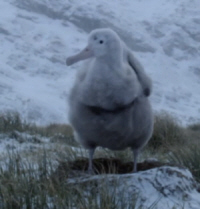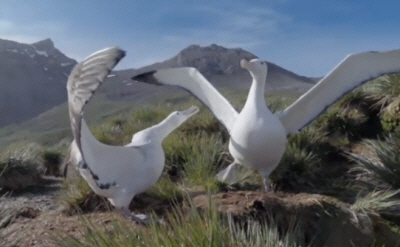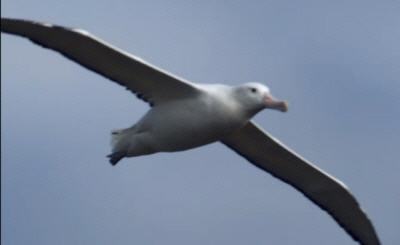Wandering Albatross
A Life spent on the Wing
Frozen Planet: David Attenborough

At the southern end of our planet, the Antarctic sea ice is still at its greatest extent. But there are a few islands on its outer edge that the sea ice never quite reaches. South Georgia is washed by the rich waters of the Southern Atlantic and the comparative warmth of the sea takes the edge off the vicious southern winter. It’s even possible for a few hardy animals, like the Wandering Albatross, to live here throughout the whole year.
The enormous Albatross chicks take 13 months to fledge, so they have no choice but to sit here throughout the winter. It can’t be easy, but the thick layer of fluffy down keeps out the worst of the cold.
Their parents travel thousands of miles to collect the fish and squid they need to stay warm and to grow. The season is turning and storms blow in with little warning.
Courtship is next on South Georgia’s busy spring schedule. The Wandering Albatross has the most elaborate display, These two are renewing their bonds after being months apart. Wandering Albatross pair up in their teens and can spend a further 50 years together - one of the longest partnerships in the animal world.

It’s the end offspring on the Wandering Albatross’ cliffs, their season for fledging. Last year’s chicks have lost their fluffy down and step up to the challenge of getting into the air. An albatross is not very competent on the ground, so until it can fly, it isn’t good for much and this makes the maiden flight THE crucial event in an albatross’ life. Managing the largest wingspan in the world takes practice… lots of it. Weeks can go by, attempting that initial take-off.

Certainly the winds must be right, but it does appear that for some, the problem is something of a mental one.
Finally, The Southern Ocean beckons. This bird’s feet will not touch land again for five years.
